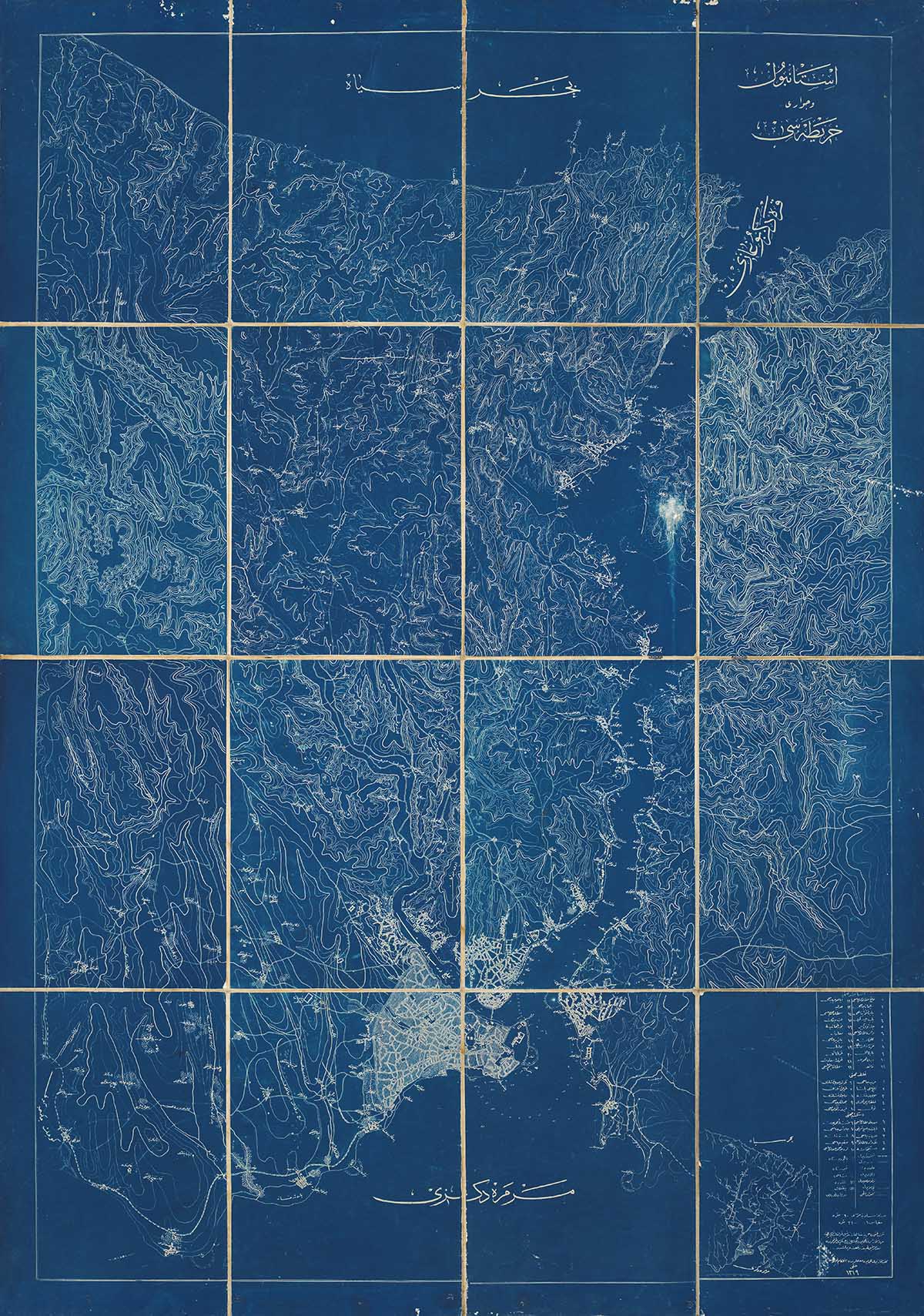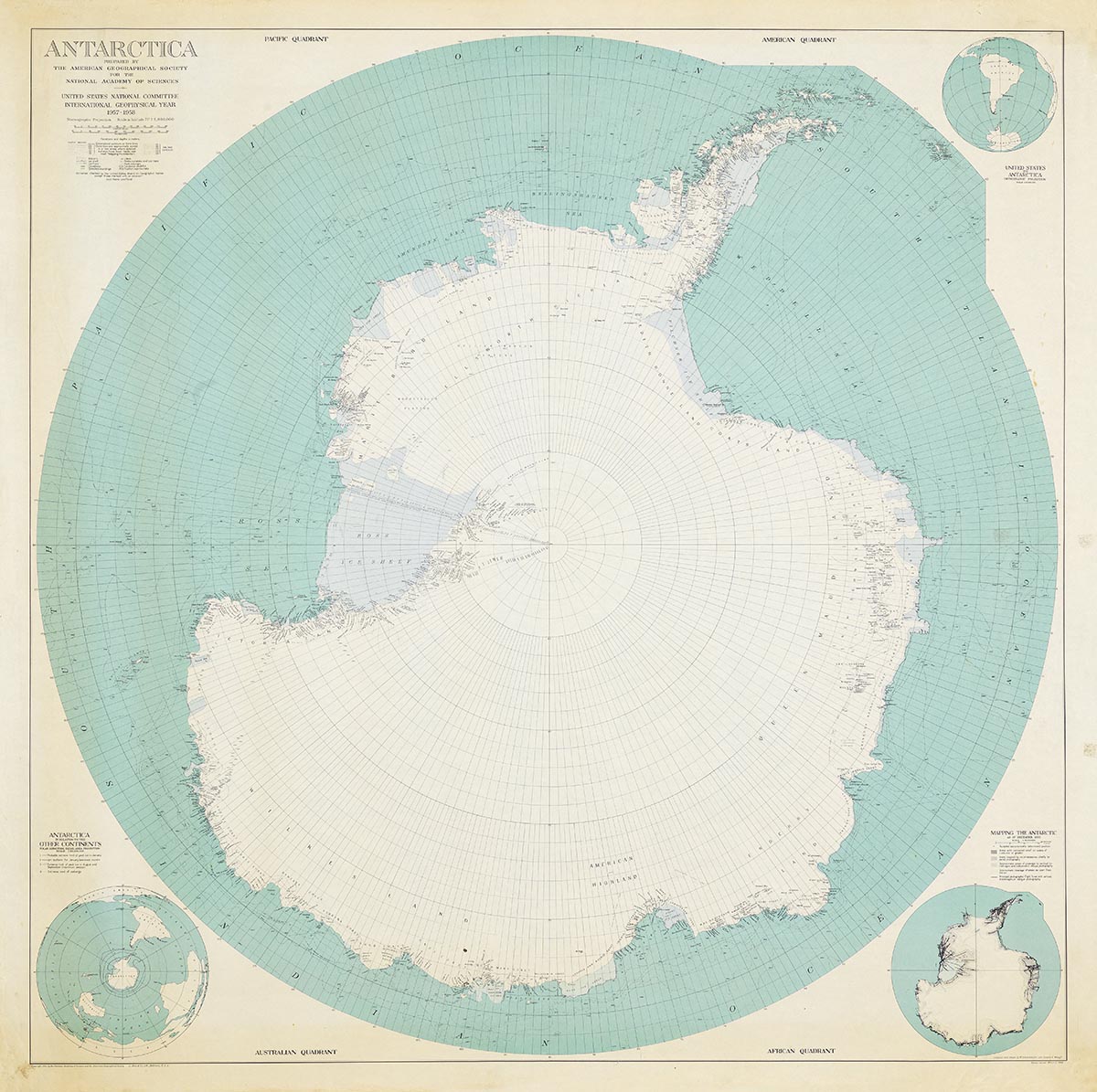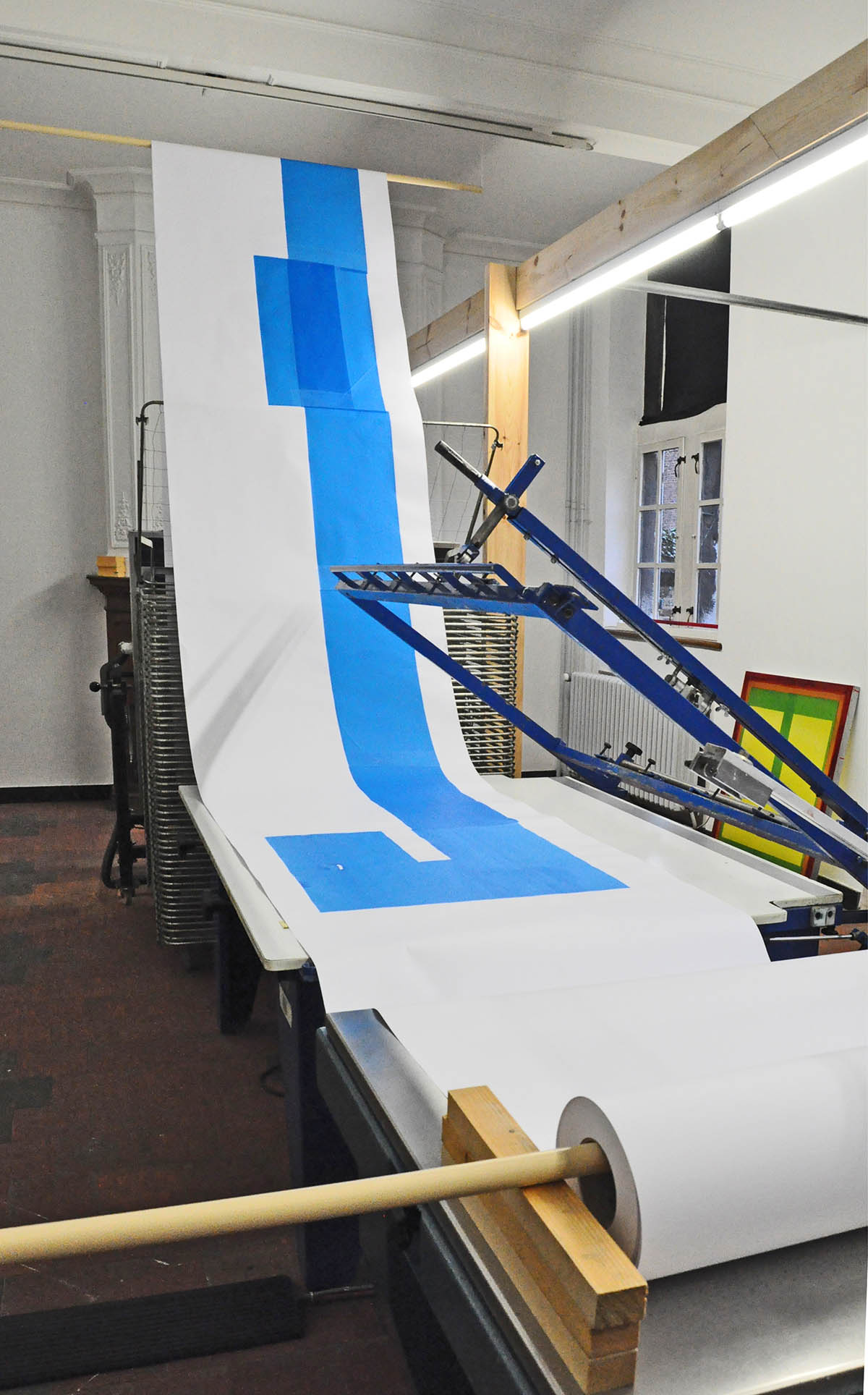Submitted by WA Contents
Jan Boelen announces theme as A School Of Schools for Istanbul Design Biennial 2018
Turkey Architecture News - Oct 18, 2017 - 10:17 14033 views

Curator Jan Boelen has announced the theme of the 4th Istanbul Design Biennial, which will be held from 22 September to 4 November 2018. Organized by the Istanbul Foundation for Culture and Arts (IKSV), the Biennial team announced the concept and open call at a press meeting held on Thursday, 12 October at Salon IKSV.
Titled A School Of Schools, the 2018 Design Biennial will be an educational multi-platform that could use, test, and revise a variety of educational strategies to reflect on the role of design, knowledge, and global connectedness in contemporary Istanbul and beyond.

Istanbul map, blueprint, 1901. Image courtesy of IKSV
"Alternative design education initiatives have consistently provided a brave space for experimentation and new knowledge, from the Bauhaus to Black Mountain College, and from Global Tools to the Sigma Group. These initiatives have not only helped design evolve, question itself and push its own boundaries, but also education and learning in general," stated the organisation.
"Not only concerned with design, many of these experiments have also tested alternative ways of living, working, and connecting with each other and ourselves. Through this process-based experiential research, new manifestations, meanings, and implications of design have surfaced."

Map of the Geographical Distribution of the Most Important Plants yielding food. Keith Johnston, 1858. Image courtesy of IKSV
"Today, design has become a form of enquiry, power and agency. It has become vaster than the world and life itself, permeating all layers of everyday life. As design becomes pervasive, the discipline can no longer claim to offer solutions to everything. In fact, the one-size-fits-all approach of many universal global systems is showing its cracks and exclusions," added the organisation.
"Similarly, design education – where the field and its practitioners have traditionally been reviewed and refined – now finds itself navigating new constraints and challenges regarding relevance, adaptability, accessibility, and finances."

Map of Antarctica. American Geographical Society. 1956. Image courtesy of IKSV
The 4th Istanbul Design Biennial will stretch both the space and time of the traditional design event, manifesting as a flexible year-long programme within which to respond to global acceleration, generating alternative methodologies, outputs and forms of design and education. A School of Schools manifests as a set of dynamic learning formats encouraging creative production, sustainable collaboration, and social connection. Exploring eight themes, the learning environment is a context of empowerment, reflection, sharing and engagement, providing reflexive responses to specific situations.
Can the biennial use, question and reframe previously tried-and-tested education models – from the museum-as-encyclopedia to the laboratory, the studio and the academy – to create a setting for meaningful dialogue and design? Can design itself be a brave space for people to share their knowledge and ignorance, their experience and curiosity?
Engaging multigenerational, transdisciplinary practitioners from Turkey and abroad, A School of Schools brings together old and new knowledge, academic and amateur, professional and personal, focusing on the process as much as the outcomes. Together, agents in this complex and ambitious ecosystem will create new knowledge, search for alternatives to implemented systems, and with radical diversity, push the boundaries of the design discipline.

Manufactuur, 3.0, installation view at Z33, 2016. Image courtesy of IKSV
Open Call: Learning From Learning At A School Of Schools
A School of Schools needs learning! Learning from all ends of the planet, from all manner of perspectives and experiences. Learning that goes outside standardised models, both existing experiments, and ideas for new approaches. Learning that brings us together physically or connects us online, learning that happens in Istanbul or beyond. A School of Schools is about learning from learning.
An open call is extended to all designers, architects, scientists, engineers, chefs, craftspeople, activists and everyone else. Fuelled by a research and process-orientated approach, A School of Schools will manifest in a variety of formats in many locations, in addition to the six-week intensive in Istanbul from 22 September to 4 November 2018.
Divided into a call for ‘schools’ and a call for ‘learners’, the open call is twofold. The format of a school is open for interpretation – from a one hour class or tutorial, to an online network or alternative university; from in situ observation and other methodologies, to critical schools of thought. The learners are anyone who would like to participate in a school, and can demonstrate an openness to discovery and transformation, regardless of design expertise, background or experience. The biennial will endeavour to address matters of financial support and other accessibility issues but encourages resourcefulness.
Both learners and schools are urged to connect their applications to one or more of the themes under scrutiny for the 4th Istanbul Design Biennial. Besides those who demonstrate a capacity and passion for learning, A School of Schools will give preference to proposals that are committed to not only learning but translating the learning into a communicable form.
Themes
The eight themes that A School of Schools will focus on have been determined based on personal, experiential and scholarly research in Istanbul, building on the research of previous Istanbul Design Biennials. While not aiming to be comprehensive, the themes indicate some of the dominant frames through which the world is learned today. Under the present conditions of information overload, extreme societal and environmental change, and increased tension between physical and digital, these parameters of knowledge are in urgent need of review.
Measures and Maps
Even if the hyperreality of digital technologies has become pervasive, we are more aware than ever that the map is not the territory. Using a diverse archive of historical maps and measuring devices in Istanbul as starting point, the exact actions and reactions of contemporary urban space can be reexamined and reviewed through subjective experiences like walking and performance, all-seeing new technologies like tracking and big data, and phygital interfaces like augmented reality. What is the role of seen and unseen spatial information in learning, and how can design connect and disconnect us from our surroundings?
Time and Attention
Ever faster machines are dictating the pace of life, commodified in the attention economy that brings with it fake news, historical amnesia, emotional indifference, and the inescapable urgency of right here, right now. These multi-temporalities pitch our biorhythms and breathing in competition to efficiency, busyness and machine learning. Keeping pace and consuming media have become more important than reflection and learning. Various learning experiments have experimented with speeding up, slowing down and fixed-time intensives. What is time’s significance in knowledge making and information absorption, and how does this impact the value of time and learning?
Mediterranean and Migration
Geopolitics is shifting, and a decentralised world relies on learning to appreciate both similarities and difference. With an emphasis on multiplicities, openness, wonder and respect, the Mediterranean will act as test case to trace and learn the complexities of social, cultural and technological connection. A region that spans three continents, including over 20 countries with more than 10 languages, the Mediterranean is a microcosm and a hub of contemporary globalisation, and through migration , stretches far beyond its physical precinct. Taking into account criticism of diversity and multiculturality, how can we reconnect and relearn from each other?
Disasters and Earthquakes
Earthquakes have been a constant transformative force with severe impact in Turkey. Such radical transformations have become characteristic of today’s accelerated times and ‘extreme present’ in which change is the only certainty the world over. These transformations are often too sudden or emotional for us to really learn to do things differently the next time. Beyond simple survival, how can initiatives such as the Whole Earth Catalogue and contemporary prepper communities become integral to reviewing and archiving knowledge for posterity, birthing new identities, communities and ways of living. Can we become better versions of ourselves under the auspices of disaster?
Food and Customs
Farming and food constitute the origins of culture; its rituals, stories, social order, and values. We learn how to behave through and around food. This goes beyond what is served and shared at the table, to every human relation and environmental factor in the supply chain, from growing to harvesting, from earthworm and microbiome to laborer and chef. With global food insecurity on the rise, and scientists engineering all manner of nondescript nutrition, how will our ability to make social connections, transfer cultural knowledge, and foster a sense of belonging be affected?
Patterns and Rhythm
From mathematics and music, to genetics and programming, to textiles and pixels, the mechanism of repetition has allowed us create and learn some of humankind’s most ambitious achievements, yet it is still often regarded as a minor aesthetic and stigmatised method of learning. From natural cycles and generative algorithms to thrilling attractiveness and public camouflage, this theme will consider the technical, educational and social significance and uses of patterns and rhythms in learning and design. When is doing things over and over ingenious, and when does it indicate that we are stuck?
Currency and Capital
In this time of cryptocurrencies and late-capitalism, cash and its exchange is growing ever more decentralised and nuanced, diffusing traditional hierarchies of power. How did we learn this entirely human-made system of trade, and how will we learn the ever more intricate developments such as blockchain? On the other hand, this could be an opportunity to scrap the entire economic system, and design alternative systems and companies. When relearning digital, physical, real and illusory currency and capital, what is of value and what can be sold also comes into question – the biennial, ourselves, the planet?
Parts and Pockets
The focused expertise within both old-school urban pockets and cutting-edge innovation hubs has historically birthed significant advances and discoveries. Especially the maker, hacker and open source communities, with their fail-fast feedback loops, have contributed to innovation in recent years. Digital technology has introduced new learning dynamics between amateur and professional, experts and crowdsourcing, specialisation and multi-disciplinarity, perfection and mistakes, solutions and evolutions. How can design facilitate the needed cross-pollination and connection for old and new, technological and urban, parts and pockets to learn and unlearn? In this theme in particular, previous biennial participants are encouraged to reflect on and evolve previous presentations.
Call for schools
Individuals, collectives and organisations are invited to express interest, indicate availability and resources, and propose new and old educational models for implementation and exhibition. Educational models should be presented in the format of a ‘school’, whether workshop, laboratory, tutorial, university, online network, camp, field trip or any other format. The proposal should not only include research, methodology, process, and duration of the school – from one hour to one year – but also its outcome. Schools may be location-specific, travelling or digital; and can either be submitted with a predefined set of participants, such as an existing school with existing students, or open to establishing a group of learners. Schools that subvert or reframe traditional pedagogical theories and binaries such as teacher and student, question and answer, and demonstrate a clear exhibition output will be given preference.
Call for learners
Learners – including people, bots and machines – from all disciplines are invited to apply to participate in the schools and express interest in particular themes. A portfolio of existing work, an expression of passion and capacity to learn, and a skills matrix are required. A School of Schools will curate an exciting cast of learners willing to share as much as they grow, and contribute to the range of perspectives explored.
Deadline for applications is 15 December 2017. You can find detailed information on Call For Schools and Call For Learners.
Top image: Manufactuur, 3.0, installation view at Z33, 2016. Image courtesy of IKSV
> via A School Of Schools
